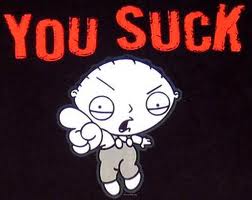
A Contemplation on the Uselessness of Music Critics
 This is interesting: a critique of critics.
This is interesting: a critique of critics.
It’s no secret that many musicians hate critics. The last time I spoke to Ian Astbury of The Cult, he went on a bit of a rant. “Pitchfork? Who the f**k do they think they are? They can’t make music so instead they tear it apart. What are their qualifications other than being assholes?”
Others have the same sort of opinion (cf. Dave Grohl, Trent Reznor and Tyler the Creator who wrote in a tweet “Everyone hears music different, so I don’t understand how music critics have jobs. Whether good or bad, it really baffles me.”)
Bitterness? Possibly. But this gives us an opportunity to look at modern rock journalism and the notion of being a music critic.
For me the problem lies in critics who think they have to be negative, that it’s their job to point out how much something sucks. Those kinds of pot shots are easy. Proper criticism–careful evaluation of a musical work, highlighting the good, the bad, and the interesting aspects of a musical work–is harder to write and thus in much shorter supply.
A good critique is more than opinion and it’s far, far more than just a description of what the critic heard. It tells the reader what to listen for, offers insight into the songwriting and recording process and evaluates the work in terms of what the artist was trying to do and where it all fits in the musical landscape.
I believe there’s far to much of the “this sucks” variety of music review. That’s why this site offers only recommendations for music I and the staff believe are worth your time. It’s curation vs. criticism. Big difference.
If you’re still with me, you’re obviously interesting in the field of music criticism. It’s now time to jump to a story in the Hollywood Reporter on the matter:
The war between musicians and their critics has been fought almost as long as so-called “rock journalism” has existed. There is an extensive list of songs penned specifically about how much musicians detest their critics (Taylor Swift’s “Mean,” believed to be aimed at music industry pundit Bob Lefsetz, references a critic who “crossed the line over and over again”) but the omnipresent state of online social media has presented musicians with a no-barrier outlet that could effectively dismantle the role of the music critic.
M.I.A.’s Twitter battle with New York Timeswriter Lynn Hirschberg is now infamous and a highly-cited example of this direct interface — one that can be used both defensively and offensively. After NME reported in Dec. 2012 that Jack White had called Lady Gaga “all artifice,” White employed his Third Man Records’ website as a forum to deconstruct the unverified news.
“If you’re going to try to cause drama, at least get the quotes right,” White wrote. “I think journalists should also be held accountable for what they say. Especially publications like the NME who put whatever words they feel like between two quotation marks and play it off as a quote. Maybe somebody with more lawyers can take them to task, but I’ll just use the Internet and Twitter instead.”
Has the role of the music critic changed in the era of Twitter, or is it just now easier for musicians to offer rebuttals to articles they dislike? And who, in the era of the Internet, where anyone can be a critic, is qualified to “review” music? As the age-old multi-use saying goes, writing about music is like dancing about architecture — the essence of a song or a melody is unknowable in words and will inevitably be lost in translation.
